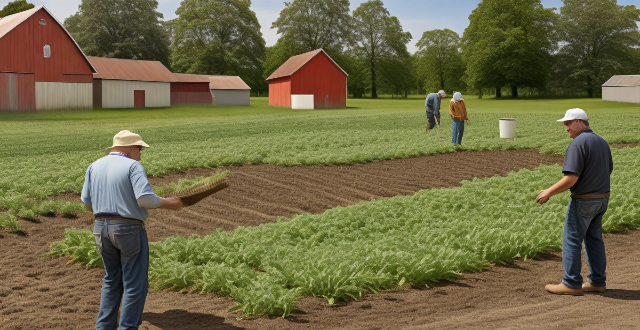Local farmers' markets play a crucial role in providing fresh ingredients for local dishes, supporting local farmers, preserving culinary traditions, educating the public, and promoting sustainability and community building.

The Role of Local Farmers' Markets in Providing Fresh Ingredients for Local Dishes
Local farmers' markets play a significant role in ensuring the availability of fresh ingredients for local recipes. They offer a wide range of benefits that contribute to the overall food system and support the culinary traditions of a region. Here's how they make a difference:
Accessibility to Fresh Produce
- Seasonal Variety: Farmers' markets provide seasonal produce, allowing consumers to enjoy fruits and vegetables at their peak of freshness and flavor.
- Short Supply Chain: The distance from farm to table is shorter, reducing the time it takes for produce to reach consumers, which helps maintain freshness.
Support for Local Farmers
- Economic Stimulus: By purchasing directly from farmers, consumers support the local economy and help small-scale farmers sustain their livelihoods.
- Diversity in Crops: Farmers are encouraged to grow a variety of crops to meet the demands of the market, leading to a richer selection of ingredients.
Preservation of Culinary Traditions
- Heirloom Varieties: Many farmers specialize in growing heirloom varieties of fruits and vegetables, which are often key ingredients in traditional recipes.
- Cultural Exchange: Farmers' markets serve as a hub for cultural exchange, where cooks can learn about new ingredients and preparation methods from fellow shoppers or the farmers themselves.
Education and Awareness
- Cooking Demonstrations: Some markets host cooking demonstrations using locally sourced ingredients, educating the public on how to prepare local dishes.
- Food Literacy: Interaction with farmers provides consumers with knowledge about food production, fostering an appreciation for the effort behind their food.
Sustainability and Environmental Impact
- Reduced Carbon Footprint: Less transportation means fewer emissions, contributing to a more sustainable food system.
- Waste Reduction: Selling only what is seasonally available and freshly harvested reduces waste associated with long-distance shipping and storage.
Community Building
- Networking Hub: Farmers' markets bring together chefs, home cooks, and producers, creating a network that strengthens the local food community.
- Local Flavor: The ingredients found at these markets reflect the unique terroir of the region, enhancing the authenticity of local dishes.
In conclusion, local farmers' markets are essential for maintaining the availability of fresh ingredients that are integral to local recipes. They not only provide high-quality produce but also support sustainable agriculture, preserve culinary heritage, educate the public, and build strong community ties. By shopping at these markets, consumers actively participate in a food system that values freshness, flavor, and the rich culinary tapestry of their region.